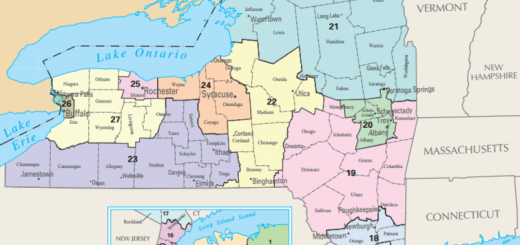Obama Comes Clean

Back in 2009, I was troubled by the reaction of many of my friends to President Obama’s speech in Cairo to the Muslim world.
I had shared the same concerns they had about Mr. Obama during his first campaign for the presidency – his Chicago politics background, his attendance of a church headed by a rabid racist, his association with other distasteful characters, the suddenness of his rise to political prominence. But after his election (which happened somehow, despite my vote for his rival) I tried to focus not on the past but the present. And I found his Cairo speech pleasantly surprising.
That he chose to address the Islamic world in itself did not disturb me. Were I in his position, I reflected, were I a person of color who lived in a Muslim environment as a child and now the leader of a free world plagued by Islamic extremism, I would have made the same choice, seized the golden opportunity to try to reach the Muslim masses with a message of moderation.
And, continuing my thought experiment, I imagined myself saying much what the new president did. He spoke of Islamic culture’s accomplishments, extended a hand of friendship and addressed some of the problems facing his listeners.
And not only didn’t he shy away from the topic of Israel, he seized it hard and fast. To be sure, he reiterated America’s long-standing support for a two-state solution to the Israel-Palestinian conflict, the position of even the Israeli government these days. And he called for an end to new settlements, also reflecting long-established American policy. But he declared too that “America’s strong bonds with Israel are… unbreakable… based upon cultural and historical ties, and that the aspiration for a Jewish homeland is rooted in a tragic history that cannot be denied.”
In fact, he decried Holocaust denial, so rife in the Muslim world, as “baseless, ignorant, and hateful,” and condemned the “threatening [of] Israel with destruction” and the “repeating [of] vile stereotypes about Jews.” He poignantly declared that “Palestinians must abandon violence,” that it is “a sign of neither courage nor power to shoot rockets at sleeping children, or to blow up old women on a bus.”
And yet some Jews were deeply unimpressed – because the president described the state of Israel as rooted in the Holocaust. The Jewish connection to Eretz Yisrael, they complained, is rather older than that. Indeed it is, of course. But somehow I wouldn’t have thought it necessary or wise for Mr. Obama to quote from the Torah, particularly to an Islamic audience.
I suppose that the critics weren’t begrudging him quite that. They just wanted to hear some reference to the fact that the Holy Land was holy to, and populated by, Jews before Muslims (or Islam for that matter) came on the scene. Even that, I thought, would have been unwise at that time and place, and I felt it was ungenerous to not at least give Mr. Obama credit for what he did say, clearly and unequivocally. And I found the president’s subsequent actions on behalf of Israel, from pushing the Iron Dome project to intensifying the anti-Iran Stuxnet collaboration with Israel to his strong and quick intercession on behalf of Israelis held hostage in Egypt (and much more) as confirmation of my judgment of the man’s commitment to Israel’s safety and security.
Now, on his recent trip to Israel, the president came clean, so to speak, on the issue of the Jewish connection to Eretz Yisrael.
“More than 3,000 years ago, the Jewish people lived here,” he said, “tended the land here, prayed to G-d here.” And he called the fact of Jews living in their ancestral land “a rebirth, a redemption unlike any in history.”
Needless to say, as the Zoharic prayer “B’rich Sh’mei,” recited by many when the Torah is removed from the ark, has it, we are not to put our trust in any man. And the hearts of leaders, in any event, are in Hashem’s hands, and subject to the effect of our own merits.
So the future cannot be known by any of us. But the present can, and we are obliged by our tradition, which hallows the concept of hakaras hatov, “recognition of the good,” to be thankful for both what President Obama has done and what he has said.
May we merit to see his continued support for our brothers and sisters in the Holy Land.
© 2013 Rabbi Avi Shafran



Recent Comments